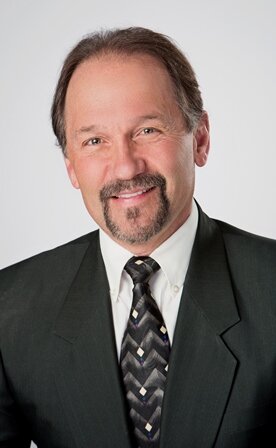Changing the way emergency SNF healthcare is delivered in Toledo
Dr. Kristopher Brickman approaches skilled nursing facility care the way he faces any medical challenge he encounters in his years of service. As medical director of SKLD Perrysburg and throughout his history as medical director of the emergency department at the University of Toledo Medical Center, he looks at the situation before him and thinks creatively about how to improve patient care and outcomes.
Bringing emergency medical care right to the bedside of skilled nursing patients
The challenge for skilled nursing care facilities, says Dr. Brickman, is that patients tend to have complex, chronic medical histories that can require acute medical care in an emergency department. But for this population, a visit to the ER can lead to more problems.
Dr. Brickman is the one to treat SNF patients in the ER and says, “My goal is to bring the emergency department to the bedside. Why drag SNF patients to the hospital and escalate the comorbidities? Every time they go to the hospital, they commonly do not get better. We have the technology and the ability to manage most problems in the facility.”
This is why locally in Toledo, Ohio and nationally, Dr. Brickman sees the skilled nursing industry as one that needs a better model of emergency care to improve patient outcomes. It’s a problem Dr. Brickman feels he’s uniquely suited to solve as an emergency physician. “I want to bring the emergency care model to the nursing home industry. We don’t just send a patient who is vomiting or has shortness of breath to the ER. We can considerably reduce morbidity because we can take care of them right there.”
Who other than an emergency physician is better suited to lead the charge to bring emergency care right to the bedsides of skilled nursing residents?
Dr. Brickman is partnering with SKLD Perrysburg to disrupt the skilled nursing care field from the ground up.
“We’re changing the world here by changing the way we deliver healthcare.”
SKLD is committed to thinking differently about an industry that is ripe for change and welcomes Dr. Brickman to the team as a leader with a shared vision and goals.
Craig Sunday, senior administrator at SKLD Perrysburg says Dr. Brickman brings both energy and empathy to every patient. “He is a go-getter, and if you talk to him, you understand this right away. He also has a great bedside manner and puts himself in the position of the resident.”
Aging baby boomers bring opportunity to improve acute care in nursing homes
The future issues for SNF care as baby boomers age are many, says Dr. Brickman. In a pilot study published in Geriatric Nursing in June 2019, Dr. Brickman lays out the mounting challenges and offers solutions.
There will be a 35% increase in demographic proportions of individuals aged 65 and older by 2030
The anticipated population growth from 39 to 69 million placing increased demand on long-term care services
An estimated 35% of individuals above 65 will require nursing home care in some capacity
This growing population adds up to extensive costs for Medicare but also can present problems for patients as facilities tend to rely on emergency departments to provide acute medical care. Anticipating the increased emergency care needs for this population, Dr. Brickman wants to change the model of acute care for skilled nursing patients now.
He proposes that an emergency provider-led model, along with a multidisciplinary team of non-emergency clinicians, can improve the quality of acute care for nursing home residents. The care team would include physician specialists and nursing staff who are trained in basic emergency care and can manage the spectrum of acute issues within SNFs.
His study, co-authored with Dr. Joseph A. Silvestri, concludes, “The future of medicine should consider the integration of emergency care providers as a critical component in the overall acute management of the skilled nursing industry. Furthermore, geriatric emergency medicine integrated in nursing facilities could become a highly rewarding and productive subspecialty of Emergency Medicine.”
Addressing medical challenges for vulnerable populations around the world
Dr. Brickman is no stranger to systemic medical problems. In medical school and beyond, he joined medical missions to Haiti. He was part of a delegation to China to develop the first EMS system there for the Beijing Olympics while also assisting in setting up the medical infrastructure for the event.
In 2007, he was pushed by his own students to found the Office of Global Health at The University of Toledo College of Medicine and Life Sciences. In that role, he has established over 15 international collaborations in the following locations: Lebanon, Jordan, Iraq, Israel, Pakistan, India, Nepal, China, Philippines, Honduras, El Salvador, Tanzania and Ethiopia.
Whether he is in an emergency room, a skilled nursing home or on a medical mission to Beirut, Lebanon, Dr. Brickman has a passion and a penchant for solving problems. He brings decades of emergency room experience, teaching and work in global health problems to the table.
Training is at the heart of better healthcare solutions for skilled nursing emergency care
Dr. Brickman brings his breadth of emergency medicine experience to skilled nursing facilities across the Toledo area, including SKLD Perrysburg. His goal in every setting, locally and abroad, is to educate and empower the nursing care team.
Training is always at the heart of Dr. Brickman’s solution, regardless of how complex the medical problem. The support team on the ground is critical to facilitate any care patients need.
“I’m working on a new paradigm in how we manage SNF patients so that we have an intuitive, broad, intense way to identify problems before they occur. My focus is on adequately training people in the building and then only sending in specialists when necessary,” says Dr. Brickman.
How telemedicine is improving emergency medical care
Today, amid a global pandemic with no certain foreseeable end, the problems Dr. Brickman is setting out to solve are many. From this pandemic, though, Dr. Brickman celebrates the rapid adoption of telemedicine in healthcare. “I’ve been trying to move this along for two years, and now it’s happening overnight.”
Dr. Brickman sees telemedicine and all the supportive technology tools involved, like wearables, as key to providing better healthcare in all areas – especially skilled nursing.
“Telemedicine gives me the resources to bring immediate medical care to our patients’ bedsides in skilled nursing homes. Medicine today is a virtual world. It’s a more efficient and effective way to deliver healthcare,” says Dr. Brickman.
For example, Dr. Brickman describes a better model for skilled nursing patient-doctor care where a physician can follow a patient’s vitals remotely using a wearable monitoring device, like a smartwatch. A patient whose oxygen level drops would automatically emit a signal to his doctor, who can then step in via telemedicine to provide care.
The highly trained nursing team on the ground would then have the basic emergency care skills and knowledge to implement the physician’s recommendations.
“We can head off disease and avoid readmission. Keeping residents inside the building is our goal.”
Beyond locally, Dr. Brickman has a vision of changing the way SNF patients everywhere receive acute care. Right now, he says he’s not aware of any ER doctors working in nursing homes, but he’s working on raising interest and awareness. “Who can do a better job of keeping somebody out of the ER than an ER doctor? An ER doc can do that better than anybody.”
Dr. Brickman hopes his work will prove the case in point. “I know how to bring smart people to the table to improve the environment, and it’s working. Patients are improving. We can do this.”
Click here for more information about SKLD Perrysburg or any of our SKLD locations throughout Ohio and Michigan.

